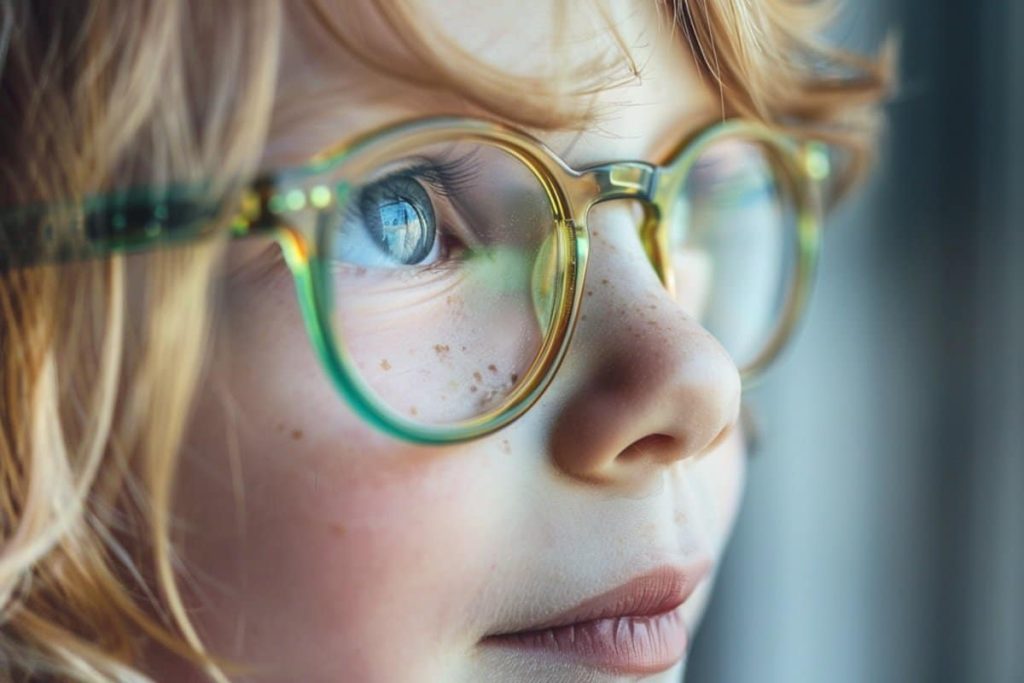summary: A new study has found that people who lose their vision before the age of 10 have a harder time judging the distance of sounds than those who lose their vision later in life. Difficulty locating sounds has serious implications for safety and navigation.
This study highlights the need for tailored healthcare solutions to improve the quality of life for patients with early vision loss.
Key Facts:
- Early vision loss affects the ability to accurately judge the distance of sounds.
- Participants with early vision loss perceived nearby sounds as farther away.
- This study highlights the importance of understanding the sensory reliance of people with vision loss.
sauce: Anglia Ruskin University
A new study finds that people who experience partial vision loss in childhood have more difficulty accurately localizing sounds than those who lose their vision later in life.
People with visual impairments rely heavily on their other senses for route planning, navigating safely, avoiding collisions, and generally functioning in everyday life.
The new research, carried out by Anglia Ruskin University (ARU) in collaboration with the University of East Anglia (UEA), has been published in the journal Optometry and Vision Science This is the first study to compare how people with early (before age 10) and later vision loss judge the distance of sounds.
The study involved 52 people under the age of 33. Each participant took part in 480 separate trials in which they had to estimate the distance of each sound. The sounds came from distances ranging from 1.2 meters to 13.8 meters and included a variety of sounds including speech, music, and noises. Participants had to estimate the distance from which the sounds came. Each participant took 1 hour and 40 minutes to complete the 480 trials.
The difference in estimates between patients with early and late vision loss and controls with fully preserved vision was greater for sounds coming from close distances than for sounds coming from far away.
Compared to controls, people with early vision loss were more likely to judge sounds played from a closer distance – up to five metres – as actually coming from farther away.
No significant differences were found between the control and late vision loss groups in distance judgments.
Lead author Professor Shahina Pardhan, director of the Vision and Eye Research Institute at Anglia Ruskin University (ARU), said: “These results suggest that people who have lost their vision at birth or in early childhood are likely to have difficulty accurately judging the distance of close-up sounds.”
“This is the first study of its kind and is important in assessing the health care needs of people who experience partial vision loss early in life, such as at birth or in childhood, and who tend to rely on other sensory abilities.”
“Clearly, difficulties judging short and medium distance sounds can have implications for safety when, for example, trying to cross the road.
“We hope that this research will provide evidence that could lead to solutions that will improve the lives of people with vision impairments around the world.”
The study was co-authored by researchers from the University of Cambridge and Sankara Nethralaya Eye Hospital in Chennai, India.
Co-author Dr Andrew Kolarik, from UEA’s School of Psychology and the ARU Institute of Vision and Eye Science, said: “Numerous studies have shown that blind people have measurable changes in their hearing and perform better or worse than sighted people depending on the auditory task they are given.
“This study shows that even partial vision loss can lead to changes in hearing, especially if vision is lost early in life.”
About this visual and auditory neuroscience research news
author: Jamie Forsyth
sauce: Anglia Ruskin University
contact: Jamie Forsyth – Anglia Ruskin University
image: Image courtesy of Neuroscience News
Original Research: Open access.
“The effects of early and late onset partial vision loss on auditory distance judgments.Shahina Pardhan et al. Optometry and Vision Science
Abstract
The effects of early and late onset partial vision loss on auditory distance judgments.
significance
It is important to know whether early-onset versus late-onset vision loss is associated with differences in estimating the distance of sound sources in the environment. Individuals with vision loss rely heavily on auditory cues for route planning, safe navigation, collision avoidance and activities of daily living.
the purpose
Vision loss can lead to significant changes in hearing ability. It is unknown whether there are differences in sound distance estimation between people with early-onset partial vision loss, late-onset partial vision loss, and normal vision. We investigated distance estimation for different sound sources and auditory environments in groups of participants with early- or late-onset partial vision loss, and a sighted control group.
Method
Fifty-two participants listened to static sounds at virtual distances ranging from 1.2 to 13.8 m in a simulated room. The rooms were either anechoic (no echo) or simulated a reverberant environment. Stimuli were speech, music, or noise. A single sound was presented and participants reported the estimated distance of the sound source. Each participant took part in 480 trials.
result
Analysis of variance revealed a significant main effect of visual condition (p0.05).
Conclusion
Findings suggest that early-onset partial vision loss leads to significant changes in auditory distance judgments across a range of environments, particularly at close and intermediate distances. Late-onset partial vision loss has less of an effect on the ability to estimate the distance of a sound source. Findings are consistent with a theoretical framework recently proposed to explain the effects of vision loss on hearing, known as the perceptual restructuring hypothesis.


